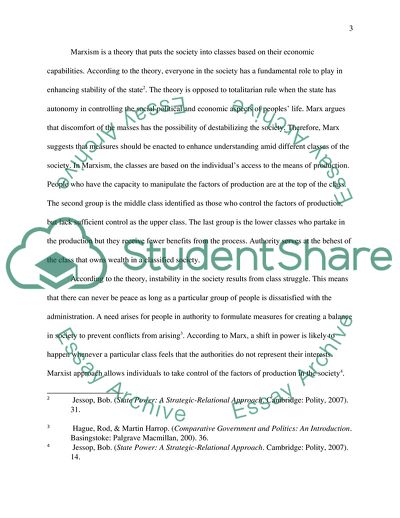Cite this document
(Marxism Theory of the State Essay Example | Topics and Well Written Essays - 1750 words, n.d.)
Marxism Theory of the State Essay Example | Topics and Well Written Essays - 1750 words. https://studentshare.org/history/1790566-which-theory-of-the-state-do-you-find-the-most-convincing-and-why
Marxism Theory of the State Essay Example | Topics and Well Written Essays - 1750 words. https://studentshare.org/history/1790566-which-theory-of-the-state-do-you-find-the-most-convincing-and-why
(Marxism Theory of the State Essay Example | Topics and Well Written Essays - 1750 Words)
Marxism Theory of the State Essay Example | Topics and Well Written Essays - 1750 Words. https://studentshare.org/history/1790566-which-theory-of-the-state-do-you-find-the-most-convincing-and-why.
Marxism Theory of the State Essay Example | Topics and Well Written Essays - 1750 Words. https://studentshare.org/history/1790566-which-theory-of-the-state-do-you-find-the-most-convincing-and-why.
“Marxism Theory of the State Essay Example | Topics and Well Written Essays - 1750 Words”. https://studentshare.org/history/1790566-which-theory-of-the-state-do-you-find-the-most-convincing-and-why.


